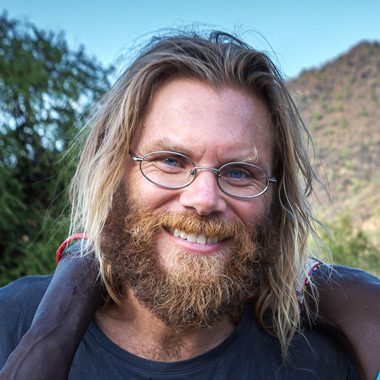The Igbo people are an ethnic group native to the central and southeastern Nigeria. Geographically, the Igbo homeland is divided into two unequal sections by the Niger River. The Igbo people are one of the largest ethnic groups in Africa.
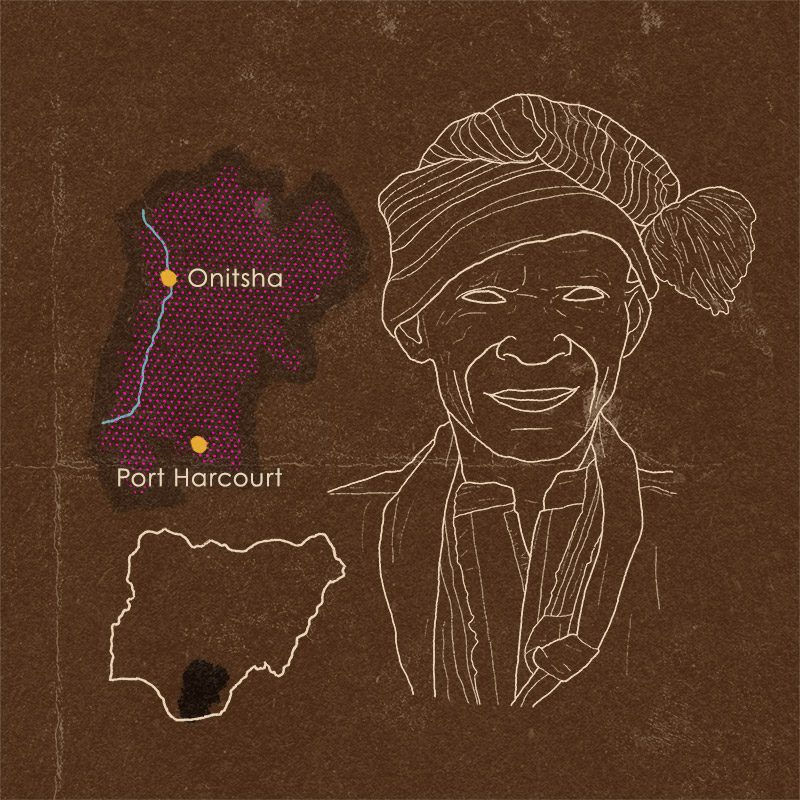
Location of the Igbo people in the territory of Nigeria
Igbo economy
Subsistence farming of yams, cassava, and taro is the main sustenance among traditional Igbo people. Trading is a major social and economic function of women in traditional Igbo society. Also, they make mats and pottery and weave cloth.
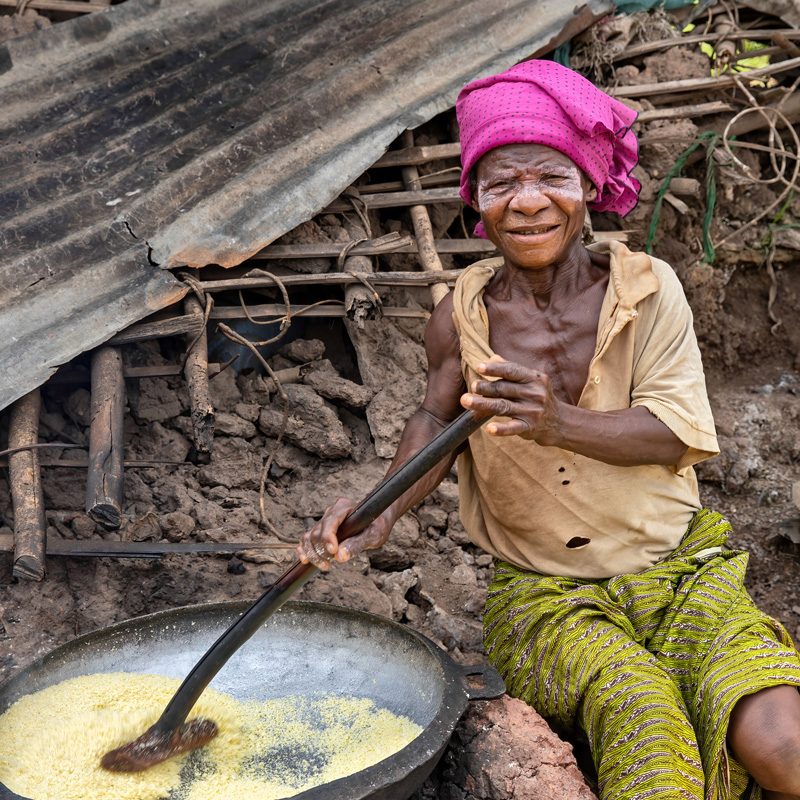
Igbo woman cooking during trip to Nigeria
Sociopolitical Organization of Igbo people
Traditional Igbo social life is based on membership in kinship and associations groups by age grades, sex and prestige-title societies. Two types of political systems have been distinguished among the Igbo: the democratic republic and the constitutional monarchy. Most of the villages or towns that have the latter type of political system have two ruling monarchs—one female called ' omu' and one male called 'obi'.
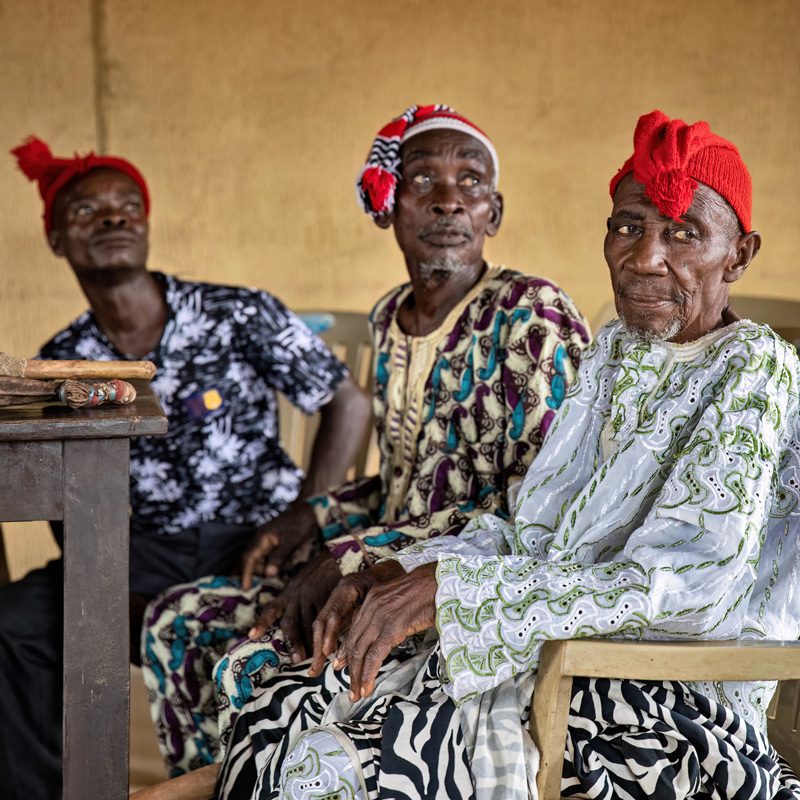
Meeting with a group of Igbo elders during a trip to Nigeria
Do you want to know the Igbo people of Nigeria?
Join the anthropologist Joan Riera on his next trip to Nigeria on 29 of Nov. to 8 of Dec. 2024 to meet the Igbo people. Click here for more details about the trip to Nigeria.
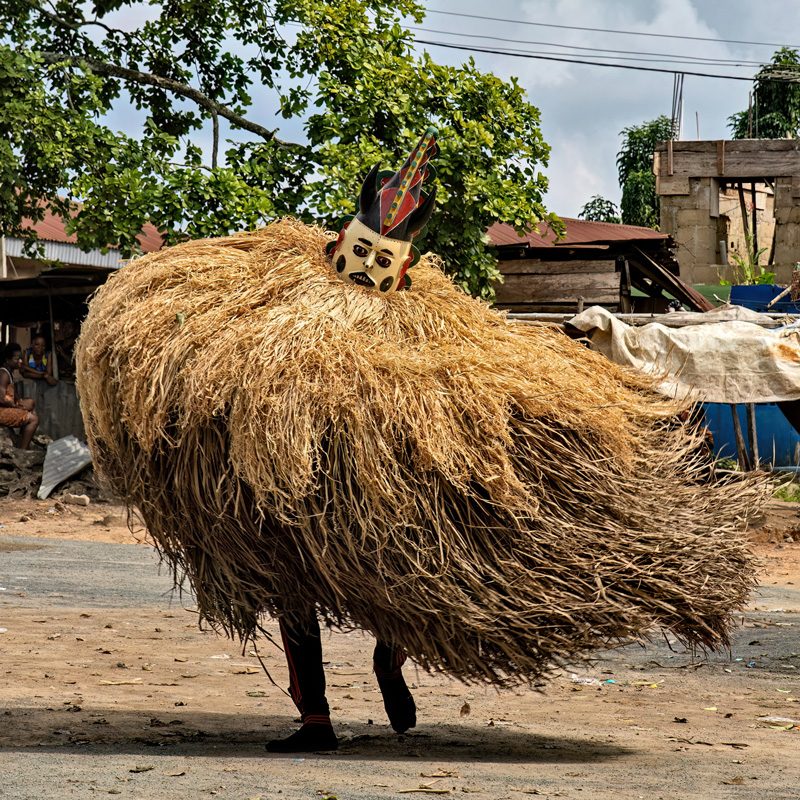
Masquerade of the Igbo people during an ethnographic trip to Nigeria
Igbo culture
Igbo art
Bronze castings found in the town of Igbo Ukwu from the 9th century, constitute the earliest sculptures discovered in Igboland. The majority of the Igbo carve and use masks, although the function of masks vary from community to community. Pointed noses, slanted eyes and thin lips characterize the style of Igbo masks. The Igbo blacksmiths of Awka are renowned for their ironsmithing. Also, wood carving, pottery and patterned woven cloth are of very high quality.
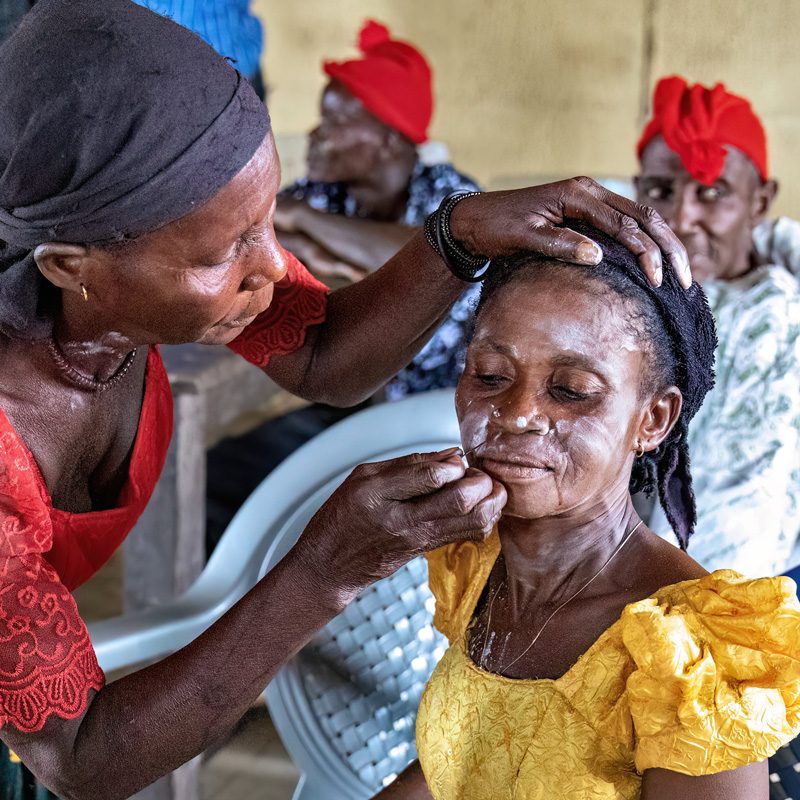
Igbo tribe woman applying uli painting during trip to Nigeria
Uli painting
Uli is a form of body and mural art that is largely practiced by Igbo women in South-Eastern Nigeria. Its name comes from the trees whose fruit or pod is used to extract the painting medium. Uli has a dynamism and beauty with deep connections to womanhood, spirit, community and nature. The images are abstract, geometric and pictorial. There are thousands of motifs and symbols many inspired by natural forms. The medium is used to beautify, as well as transfer stories.
Iru Mgbede is a rite of passage celebrating womanhood. The young woman is sequestered away for 6 months during which time she is pampered and fed the choicest foods. Also, she learns dances, decorates the walls of her quarters, and cares for skin and body. As part of the celebration her body is decorated with Uli.
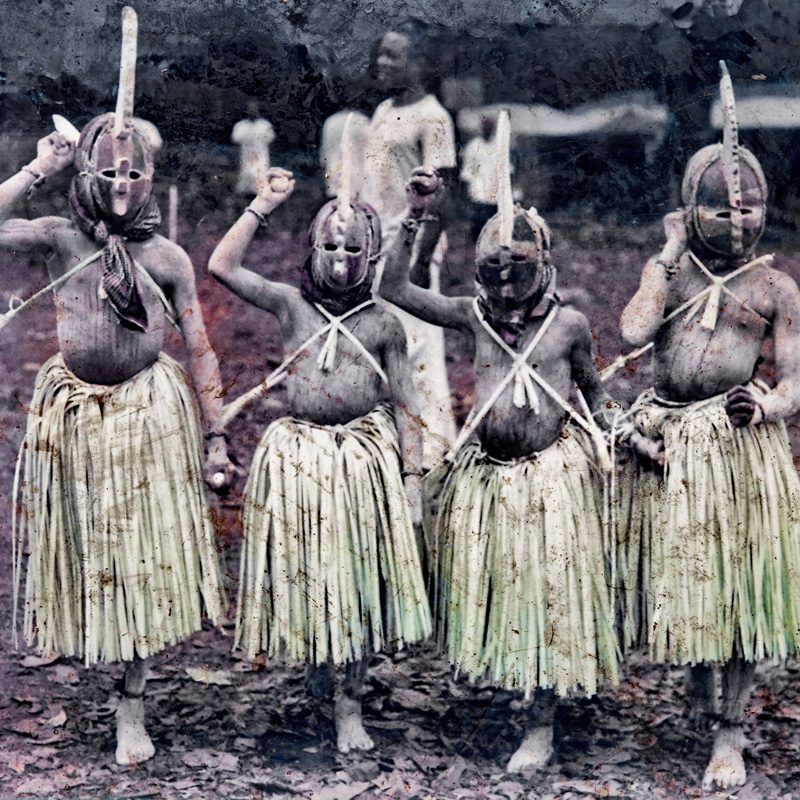
Old photograph of a religious celebration of the Igbo people of Nigeria
Igbo religion
Although many Igbo people are now Christians, traditional Igbo religious practices still abound. The traditional Igbo religion includes an uncontested general reverence for Ala or Ana (the earth goddess) and beliefs and rituals related to numerous other deities, spirits, and ancestors, who protect their living descendants. Revelation of the will of certain deities is sought through oracles and divination. Additionally, the igbo build shrines and temples of worship.
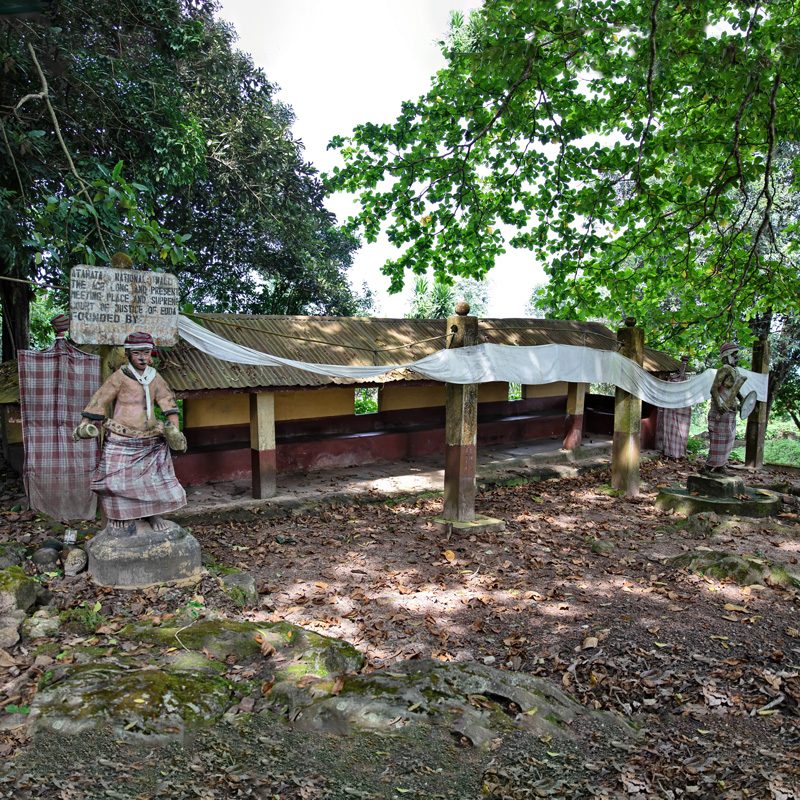
Visit to an Igbo temple during a trip to Nigeria
Throughout the 20th century, the Igbo people kept shrines with large wooden figures representing village deities, who offered protection and prosperity to the community. The figures have elaborate hairdos, scarification and wear carved ornaments on their arms and legs —all marks of beauty and high rank in traditional Igbo society. The figures were brought out during annual ceremonies, repainted, and given libations.
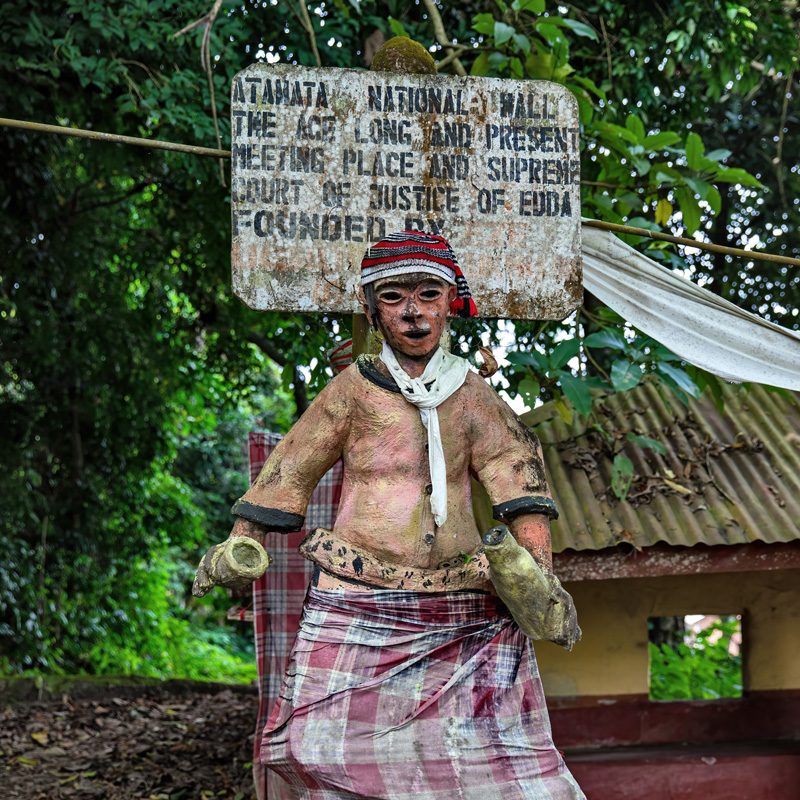
Igbo sculpture from a temple during a trip to Nigeria
Ichi scarification
Scarifications known as Ichi refer to a facial scarification ritual practiced mainly on noble men in the Awka-Nri region of Nigeria. Ichi marks denote that the Igbo man has passed through the first stage of initiation into the Nze na Ozo society, the most important spiritual, religious and social association in Igbo society. The title affords these individuals prestige, power, and influence in the community. Wearers of ichi are authorized to perform various rituals and to designate titles amongst village members.
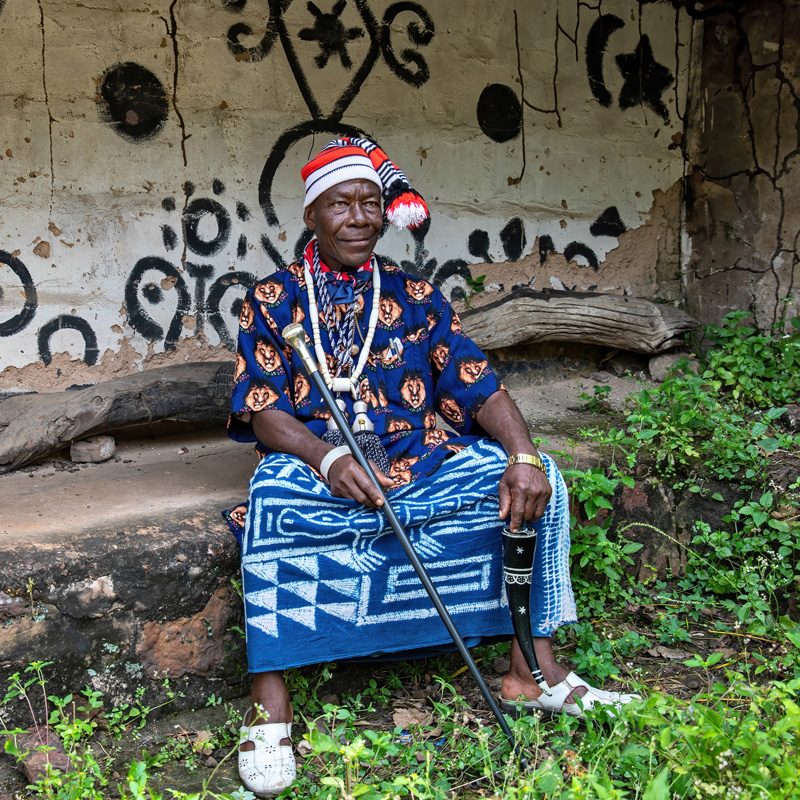
Visit to Igbo community during trip to Nigeria
Challenges of Igbo people
Igbo society suffered greatly from slave raids in the 17th Century, later came British colonisation, and from 1967 to 1970 the Biafra War when Igbos tried to have their own country and rule themselves. Their culture has been greatly transformed due to social, economic changes and war. Nowadays, there are projects of cultural revitalization, such as the restoration of traditional homes, shrines and the coming back of Uli body paint and masquerades. Last Places is strongly supporting these processes of cultural revival and preservation of tribal heritage through cultural tourism in the region.
You can learn more about the Igbo people of Nigeria at www.101lasttribes.com
© Photographs by Jordi Zaragozà Anglès taken during a trip to Nigeria.
